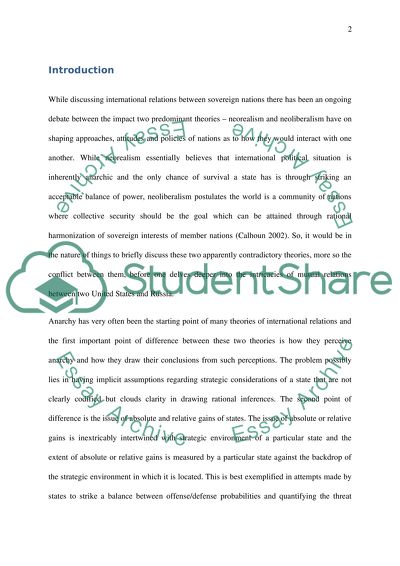Cite this document
(“Neorealist and Neoliberal Alternatives to U.S. - Russian Security Essay”, n.d.)
Retrieved from https://studentshare.org/politics/1404874-neorealist-and-neoliberal-alternatives-to-us-russian-security-cooperation
Retrieved from https://studentshare.org/politics/1404874-neorealist-and-neoliberal-alternatives-to-us-russian-security-cooperation
(Neorealist and Neoliberal Alternatives to U.S. - Russian Security Essay)
https://studentshare.org/politics/1404874-neorealist-and-neoliberal-alternatives-to-us-russian-security-cooperation.
https://studentshare.org/politics/1404874-neorealist-and-neoliberal-alternatives-to-us-russian-security-cooperation.
“Neorealist and Neoliberal Alternatives to U.S. - Russian Security Essay”, n.d. https://studentshare.org/politics/1404874-neorealist-and-neoliberal-alternatives-to-us-russian-security-cooperation.


